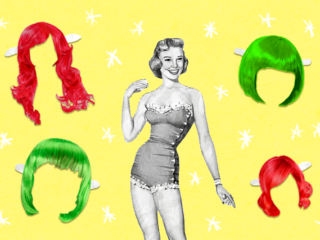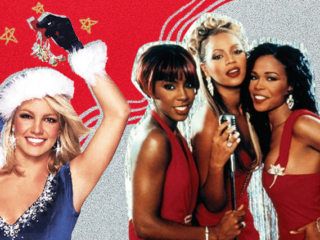Feminism, not everyone wants to talk about it but we should. Some people find it taboo but conversations need to be started and continued to tackle issues revolving around feminism. You probably have peers in your circle who do so, and more power to them. But, it’s also good to look outside of that and learn from others.
One woman who caught my attention recently is Kiran Gandhi who is an electronic music artist and activist who goes by the stage name Madame Gandhi. Based in Los Angeles, she actually “gained recognition as the former drummer for M.I.A. and Kehlani.” Now going solo, her mission “is to elevate and celebrate the female voice.” Her feminist outlook on life bleeds through not just her music but even down to the way she meditates, and of course, the talks she gives.
Her latest track is entitled “Bad Habits” and is described as an “anthem about being your best self.” In the credits of the music videos, it is even pointed out that it featured “an all female/femme led cast and crew.” Yes, girl! In the lyrics, she talks about how she wants to rid herself of bad habits and how she’s educating herself. I’ve been reading about womxn’s history / In the 1920s / Thinking about how I be so much better. This song stresses that we should first look into ourselves before pointing fingers at society. Sure, society is f*cked up, but are you somehow contributing to that?
Last month, she did an ASMR interview with Fuse wherein she broke down the different steps of her meditation routine. Aside from focusing on being grateful and staying in silence, at the end she makes it about others. She thinks of two people she wants to send kindness and love to for that day. I’m definitely taking notes from her meditation routine and applying it to my own.
I also came across some clips from her talk at the Lesbians Who Tech Summit that took place in San Francisco earlier this year. One topic she brought up was misogyny in music. Kiran pointed out that female artists like Cardi B and Beyonce are releasing powerful feminist songs but misogyny is still prevalent. “Misogyny is everywhere, it’s in the airwaves. And after a while I’m like, yo, I’m not everyday trying to turn up to the sound of my own oppression.” Even in her everyday life, she couldn’t escape it. “I was across the street doing Soul Cycle and every other song is a turn up song for use to be able to work out. But then every other lyric is so violently misogynistic.” And, it’s true.
Another important point Kiran brought up was that of femininity. “For me, femininity is about collaboration instead of competitiveness. It’s about emotional intelligence instead of this brute force ego-driven hyper machismo obsession that we have in politics today.” She mentioned this specifically for the U.S., but I think this applies to the Philippines as well. We have leaders in office with such fragile masculinity that they have to prey on women who they think are “weaker.” As a solution to this, Kiran suggests we think of alternatives that are based on love, solidarity, and joyfulness.
Lastly, she spoke about the music that she writes. “I do make music that reacts to the patriarchy, that channels a lot of my anger and frustration. But, at the same time, I don’t want our identity to be defined according to how oppressed we are.” So, as much as possible, she wants to speak of our joy, sex positivity, queer experiences—essentially what isn’t “mainstream.”
Having Kiran be so open and discuss all of these problems we face and how feminism plays a big role in fixing these things is so important. If you want to know more on what you can do, you have to keep learning as well as educate others on what they can do, and she is a good example of just that.
Photo courtesy of Madame Gandhi’s Instagram account
For the latest in culture, fashion, beauty, and celebrities, subscribe to our weekly newsletter here
Follow Preen on Facebook, Instagram, Twitter, YouTube, and Viber
Related stories:
Meghan Markle talks feminism in latest speech
Pia Cayetano’s brand of feminism coddles the patriarchy
What I learned from talking about feminism to college students
The importance of teaching feminism at a young age


